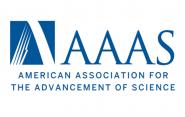Brian Scassellati Selected for AAAS Public Engagement Fellowship

Brian Scassellati, the A. Bartlett Giamatti Professor of Computer Science & Mechanical Engineering & Materials Science, has been selected by the American Association for the Advancement of Science (AAAS) as a Leshner Leadership Institute Public Engagement Fellow.
Scassellati is one of 12 scientists and engineers working in artificial intelligence (AI) selected for the fellowship, convening researchers who demonstrate leadership and excellence in their research careers and have demonstrated an interest in promoting meaningful dialogue between science and society.
The AAAS Leshner Fellows will meet in June 2020 at AAAS headquarters in Washington, D.C. for a week of intensive public engagement and science communication training, networking and public engagement plan development. In the following year, the fellows will use these tools and networks to increase the impact of their engagement activities and their capacity for public engagement leadership. AAAS staff provide ongoing support and continuing professional development throughout their fellowship year.
A researcher specializing in work in robotics to explore human social behavior, Scassellati has focused much of his work on the developmental progression of early social skills and of disorders of social development, such as autism. He said his participation in the AAAS fellowship will help him bring the message about AI research to a wider public audience.
“While I might reach a few hundred people with a lecture, I am hoping to find ways to scale beyond this,” he said. Another major goal of his is to lead institutional changes to allow AI researchers to have more of a voice in public debates involving this field of research.
While some researchers are reluctant to engage the media out of concern that their work could be misrepresented or oversimplified, Scassellati said it’s critical for people in the field to take a proactive approach to helping the public understand the nature and importance of their work.
“By keeping research locked away, researchers create a vacuum where unqualified pundits and false information can flourish,” he said.
The scientists and engineers selected for the 2020-2021 cohort represent the field of artificial intelligence that works to develop or study machines and algorithms that augment or mimic human abilities, learn from and adjust to new situations, and perform tasks such as responding to search requests, managing manufacturing processes, and assisting with the diagnosis and treatment of medical conditions.
The selected fellows’ have a wide range of approaches to public engagement, including online blogs, videos and discussions as well as traditional and social media, podcasts, books, policy engagement, K-12 outreach and public science events and competitions. In addition to engaging the public in two-way dialogue about their research through such activities, they also will promote public engagement among their scientific colleagues and within their institutions.
Scassellati’s own approach to public engagement has been multifold. He has been working with outreach programs to generate interest among middle and high school students, especially those from areas that don’t have much first-hand experience with scientists. At the university level, he has worked to promote understanding about AI among arts and humanities faculty, including a 10-day summer course that he has led for two years. And he recently started a three-year term as a member of the governing board of the Association for the Advancement of Artificial Intelligence, the largest AI professional organization. That position, he said, gives him the platform to help other scientists and researchers bring their work into the spotlight.
The AAAS Leshner Fellows program is in its fifth year and is part of the organization’s long-standing and still-growing commitment to science communication and public engagement.

